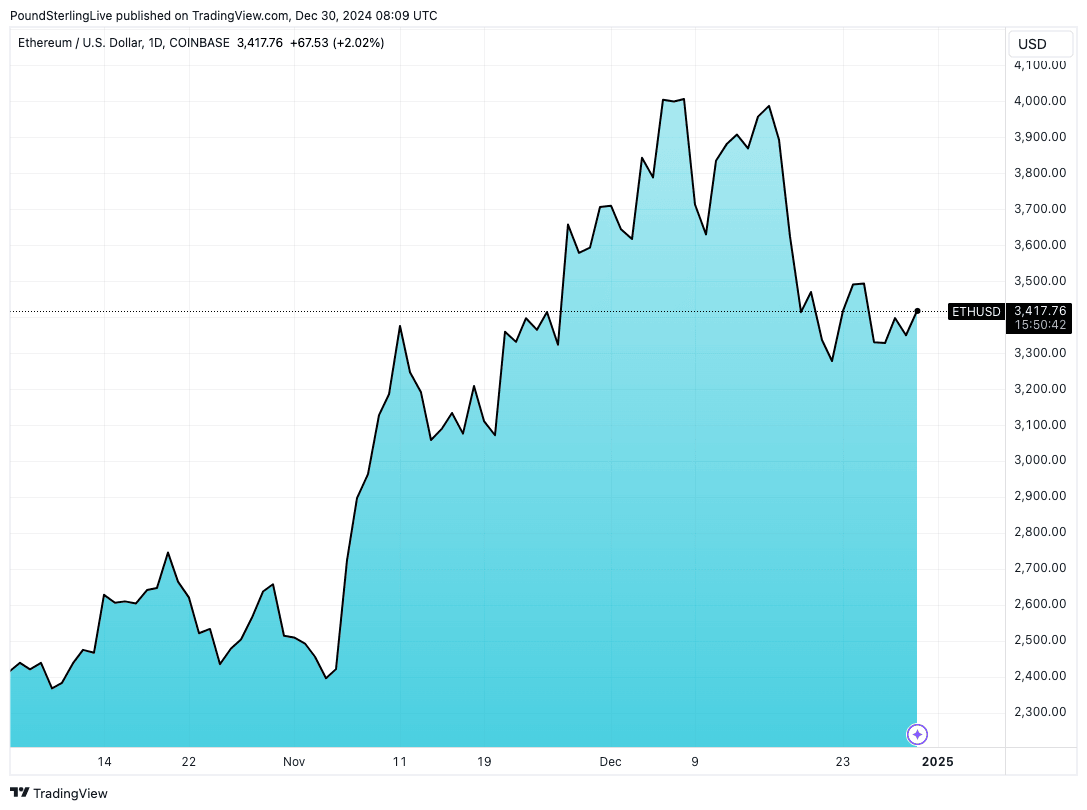Ethereum Use Cases: Key Applications of the Versatile Blockchain
- Written by: Sam Coventry
-
Ethereum’s innovative features, including its support for decentralised applications and smart contracts, distinguish it as one of the most robust and versatile blockchains. Its diverse applications continue to drive adoption and innovation across multiple sectors.
Current ETH Price: $1,234
Ethereum, a decentralised blockchain platform, has gained significant attention as the foundation for Ether and a wide range of innovative applications.
With the current ETH price at $1,234, Ethereum continues to be a focal point in the blockchain and cryptocurrency sectors. Here are the most notable use cases of Ethereum, showcasing its impact across industries.
1. Decentralized Finance (DeFi)
Ethereum pioneered the creation of smart contracts, enabling the rise of decentralised finance (DeFi) applications. These applications bypass traditional financial regulations, offering secure, transparent, and cost-effective financial services accessible to anyone, regardless of location or financial status. DeFi apps are open source, ensuring security and transparency for users.
2. Non-Fungible Tokens (NFTs)
Ethereum powers the creation and trading of non-fungible tokens (NFTs), unique digital assets representing ownership of virtual commodities. Its blockchain ensures secure, transparent transactions, making it the leading platform for NFT minting and trading.
3. Smart Contracts
Smart contracts are self-executing agreements that automate transactions based on predefined conditions. They eliminate intermediaries, streamline processes, and enhance security in collaborations and transactions.
4. Tokenization of Assets
Ethereum facilitates the tokenisation of real-world assets, enabling broader access and liquidity. This use case transforms traditional ownership models, allowing assets to be digitally transferred and owned on the blockchain.
5. Decentralised Applications (DApps)
Decentralised applications are open-source programs running on Ethereum’s network. These applications serve diverse purposes, from voting systems to NFT marketplaces, without centralised control.
6. Enterprise Ethereum
Enterprise Ethereum offers customised networks and software for organisations. These permissioned solutions provide tailored control over architecture, users, and validators. Notable participants include Microsoft, Mastercard, and Samsung, with over 300 financial organisations leveraging Enterprise Ethereum for inter-bank payment networks.
7. Stablecoins
Stablecoins are digital currencies pegged to traditional assets like fiat or commodities. Ethereum supports the creation and use of stablecoins, which act as reliable stores of value and hedges against market volatility.
8. Intellectual Property Rights Management
Ethereum's smart contracts streamline the licensing, distribution, and royalties of digital content, ensuring creators are fairly compensated. This transparent, secure solution improves the enforcement of intellectual property rights.
9. Supply Chain Management
Ethereum enhances supply chain management by providing transparent, tamper-proof transaction records. Its blockchain improves traceability and reliability, addressing long-standing challenges in the industry.





